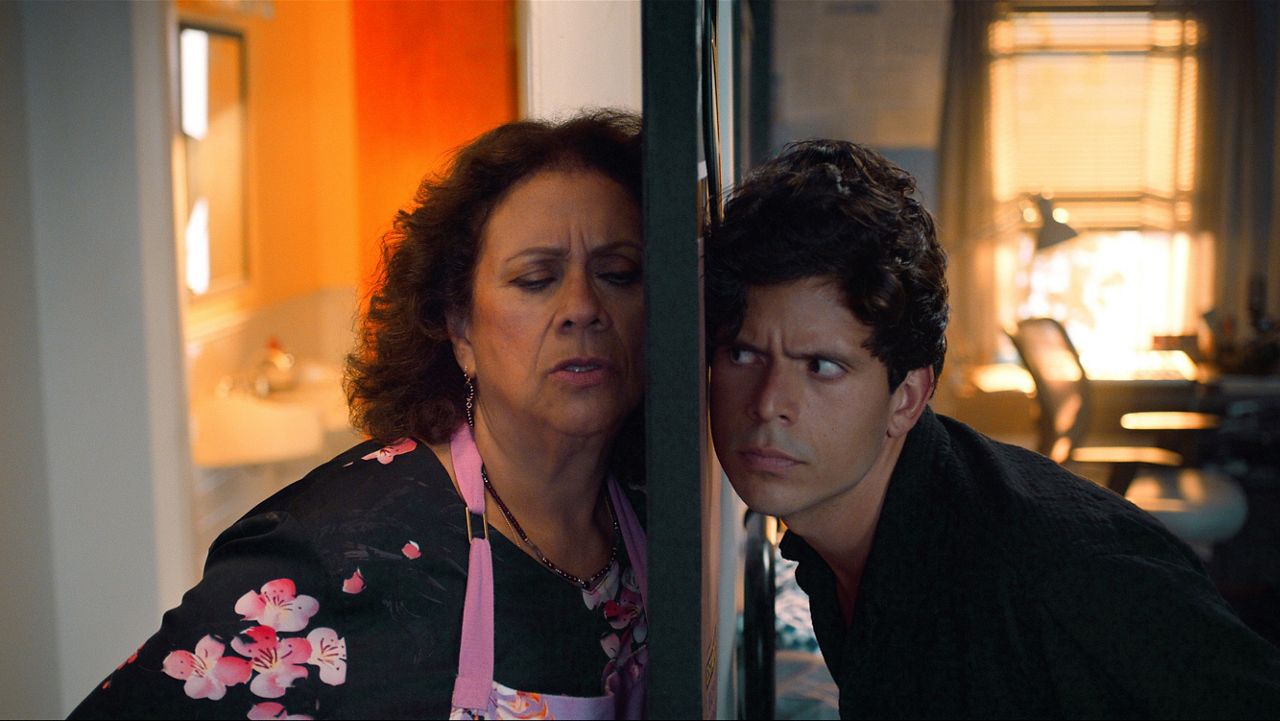LOS ANGELES — In “Música,” Rudy Mancuso has a unique view world, and thanks to a rare condition called synesthesia, everyday noises, like car horns to water droplets to doors slamming, become a series of complex rhythms.
In “Música,” he struggles to keep the music at bay while living in a close-knit Brazilian community in Newark, New Jersey. He soon finds himself in a love triangle and struggles to not only balance his cultural heritage, but the women in his life and the music in his head.
“Música” is based on Mancuso's own story. He not only directed the film but is a co-writer. For him, the film means everything. The film is a reenactment of his experience and it features some of the actual people who were there during the experiences. For example, Mancuso’s real-life mother plays his mother in the film.
“It was an opportunity to showcase and depict Brazilian-American culture on screen in a major way. It also explores synesthesia in a unique relationship with music. Two things I want to see more in mainstream TV and film,” he said.

Synesthesia, Mancuso and his co-star Camila Mendes, described the condition as the tripping up of one’s sensory wires, where one sense association triggers another sense. Mendes likes to say that one could "taste Tuesday" or "smell pink." Though there are several forms of synesthesia, Mancuso’s is rhythmic association, whereby he turns everyday sounds into rhythm.
“At its core, it is a neurological condition. I didn’t know I had it. A lot of synesthetes don’t know they have it. It is a difficult thing to diagnose: Only you know what your perception is. I ended up doing a lot of research," Mancuso said. "This almost-musical OCD, as I like to call it. My brain is obsessively trying to turn sound into some kind of musical construct…whether it be rhythm, harmony, melody…and as you saw in the film, it is sometimes very hindering and distracting. Other times, it is very rewarding,” said Mancuso.

Mendes saw the film as an opportunity to shine a light not only on Brazilian culture, but Brazilian-American culture, which felt most authentic to her.
In “Música,” Mendes, says, representation came together in a very unique and nuanced way — one that allowed her to relate to Mancuso’s own story.
“I was very connected to the story,” she said. “Just us telling this story is a step in the right direction of providing representation and I am already thinking of ways I can continue to provide more representation, not just for me but for other Brazilians or Brazilian-Americans in the industry.”
“Música” is now streaming on Prime Video.
Click the arrow above to watch the full interview with Rudy Mancuso and Camila Mendes.



